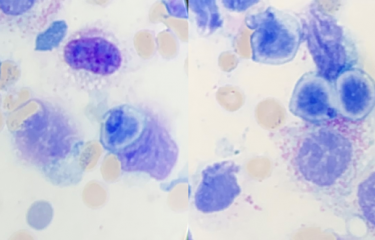In Senegal the prevalence of malaria declined from over 30% to less than 5% between the early 2000s and 2015 thanks to the implementation of preventive measures recommended by WHO such as Artemisinin-based combination therapy, rapid diagnosis and impregnated mosquito nets. What is the impact of these preventive measures on antimalarial immunity of populations?
To answer this question, several teams of researchers from the Institut Pasteur in Dakar, in collaboration with colleagues from the Institut Pasteur in Madagascar and Paris and IRD, compared the amounts of blood antibodies active against antigens of different stages of the parasites in populations of two villages between 2002 and 2013.
Indeed, the researchers are actively following the populations of the villages of Dielmo and Ndiop, located in the south of the country near the border with the Gambia, for more than 20 years, making it possible to compare situations before and after the implementation of the malaria prevention strategies.
The results of this study show a significant decline in immunity against malaria in all age groups although the populations of both villages continue to be largely bitten by mosquitoes. This immunity even becomes almost non-existent for all antigens tested in young children and very low in adolescents. These results indicate a drastic decline in exposure to malaria. The profiles of immune responses in both populations are now identical at a low level, whereas in the early 2000s Dielmo showed very high malaria throughout the year and Ndiop showed moderate and seasonal malaria.
This study shows both the performance of the prevention strategies that have broken the parasite chain of transmission but also the need to maintain these strategies in a context where populations now have a very limited immunity against malaria. The widespread use of the serological approach used by researchers would make it possible to monitor the evolution of the effectiveness of malaria control measures.
Source: Perraut R, Varela ML, Loucoubar C, Niass O, Sidibé A, et al. (2017) Serological signatures of declining exposure following intensification of integrated malaria control in two rural Senegalese communities. PLOS ONE 12(6): e0179146.
For more information, please visit





